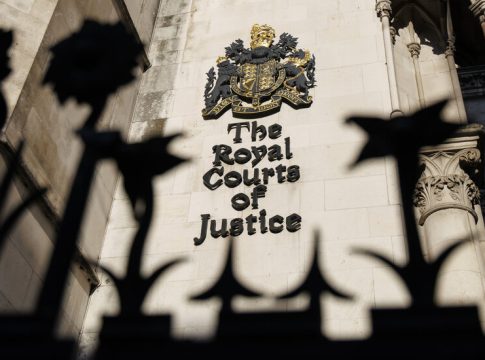High Court Issues Stern Warning on AI Misuse in Legal Proceedings
In a groundbreaking announcement, the High Court of England and Wales has raised alarms over the use of artificial intelligence (AI) by legal professionals, warning that misuse could lead to criminal prosecution. This marked a rare intervention by one of Britain’s senior judges, highlighting the urgent need for clear guidelines in an era increasingly dominated by AI technology.
Unprecedented Cases of AI Fabrication
The court’s caution comes in the wake of several troubling cases where lawyers submitted legal arguments containing fabricated quotes and fictitious rulings generated by AI tools. One notable incident involved a plaintiff whose claims were dismissed due to reliance on "inaccurate and fictitious" material produced by AI. In another case, an attorney could not sufficiently explain the origin of nonexistent cases that appeared in her client’s arguments against a local council, raising questions about the integrity of the judicial process.
Call for Action: Strengthening Legal Guidelines
Judges Victoria Sharp and Jeremy Johnson emphasized that current regulations regarding AI use in legal filings are inadequate. This intervention is more than just a warning; it signals a pivotal moment for the legal profession, which has been traditionally resistant to change. Judge Sharp articulated that the court has the authority to enforce legal duties owed by professionals, stressing that failures to adhere to such standards could undermine public confidence in the justice system.
Implications for the Legal Community
The judicial warning has serious implications for lawyers who might be tempted to leverage AI without adequate scrutiny or verification. Potential consequences include criminal charges or disbarment for those found guilty of misusing AI-generated data. This sets a precedent for accountability that could reshape how legal professionals approach technology in their work.
Reflecting on AI’s Rapid Evolution
While AI has made great strides in recent years—transforming industries from marketing to healthcare—the legal sector is now grappling with the challenges posed by its misuse. The rapid development of AI tools has often outpaced existing regulations. This moment serves as a reminder of the need for continuous evolution in legal frameworks to keep up with technological advancements.
Moving Forward: A Balanced Approach
Looking ahead, the legal community must strike a balance between embracing the efficiencies offered by AI and ensuring rigorous standards of accuracy and integrity are maintained. As AI technology continues to evolve, establishing best practices will become paramount. This unfolding narrative promises to reshape the landscape of law, ensuring that justice remains upheld even in the face of advancing technology.
In summary, as the legal system navigates these uncharted waters, the High Court’s intervention serves as both a wake-up call and a guideline for lawyers to proceed with caution and diligence. The question now is not whether AI will play a role in the future of law, but rather how its integration will be managed to safeguard the principles of justice.

Writes about personal finance, side hustles, gadgets, and tech innovation.
Bio: Priya specializes in making complex financial and tech topics easy to digest, with experience in fintech and consumer reviews.

